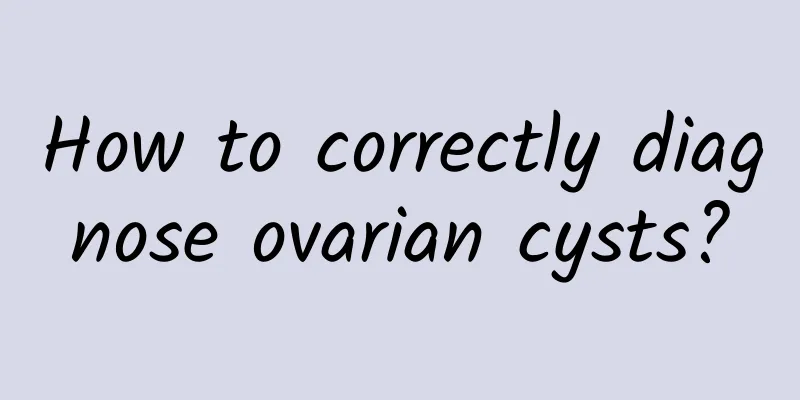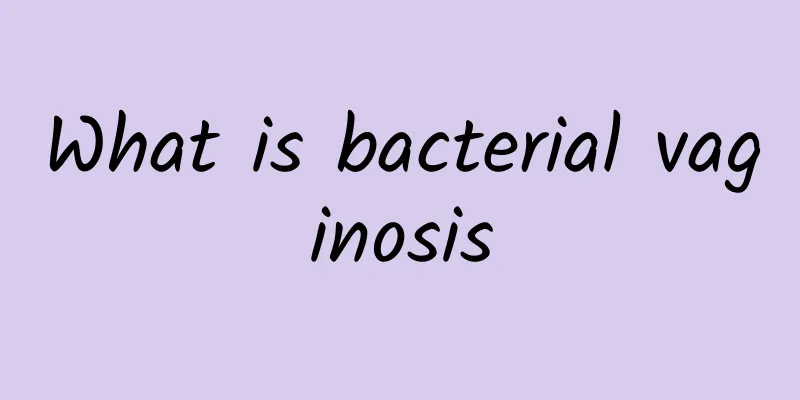How to correctly diagnose ovarian cysts?

|
The diagnosis of ovarian cysts is often difficult or easy depending on the size and characteristics of the tumor. When checking the medical history, you should not only pay attention to the reproductive organs, but also the general condition and the relevant medical history of other important organs; combined with clinical manifestations and physical examinations, in addition to paying attention to the characteristics of the tumor itself, you should also understand the general condition. So, how to diagnose ovarian cysts specifically? Gynecologists have detailed the diagnosis of ovarian cysts: The differential diagnosis of ovarian cysts should be based on the speed of tumor growth, size, characteristics, side, activity, presence or absence of complications, and other auxiliary examinations, as follows: 1. Multilocular mucinous cystadenoma: Although the tumor is large, there are no obvious symptoms. It is cystic and slightly full, and has a slightly irregular shape. 2. Fibroma: as big as a fist, solid, nodular on the surface, floating in the ascites, and with unilateral pleural effusion. 3. Cystic teratoma: same size, solid but soft, grows bilaterally, and has no effect on menstruation. 4. Malignant transformation of benign tumors: If the above situation occurs suddenly and rapidly, and part of the tumor becomes hard (cancerous) or soft (necrosis, bleeding), it changes from being movable to being fixed. 5. Primary malignant ovarian tumor: It is solid at the beginning, grows bilaterally, develops rapidly, and is accompanied by ascites, even edema of one lower limb, malnutrition, and adenocarcinoma is the most common. 6. Gastrointestinal metastases: Gastrointestinal symptoms occur first, and then bilateral ovarian solid tumors are discovered. In general, the diagnosis of ovarian cysts should not only focus on the diseased organ, but also pay attention to other adjacent parts and even the whole body. Only in this way can we accurately judge the condition and take effective treatment measures. If you want to know more about ovarian cysts, please consult on this website. Special topic on ovarian cysts: http://www..com.cn/fuke/ncnn/ |
<<: Experts explain: Are bilateral ovarian cysts serious?
>>: Five self-diagnosis methods for uterine fibroids
Recommend
What are the symptoms of congenital absence of vaginal infection?
We all know that the main difference between men ...
What are the symptoms of cervical erosion in women? Symptoms of cervical erosion in two degrees
Cervical erosion is a gynecological disease with ...
Patients with cervical erosion should undergo routine examinations in a timely manner
Nowadays, more and more women suffer from cervica...
Paying attention to hygiene is the key to preventing cervical erosion
The incidence of cervical erosion has been gettin...
What are the symptoms and treatment of adenomyosis?
Adenomyosis is a disease caused by the invasion o...
Chocolate cyst physical therapy price
What is the cost of chocolate cyst treatment? Thi...
What are the symptoms of ovarian cysts?
What are the symptoms of ovarian cysts? What symp...
Overview of threatened miscarriage
Many female friends have gone through untold hard...
Foods that are good for premature ovarian failure
For women, ovarian health is an important indicat...
A brief discussion on the specific symptoms of female dysmenorrhea
Dysmenorrhea is a common physiological phenomenon...
Is it okay to have sex twice 25 days after a miscarriage?
Whether it is a big deal if you have sex twice wi...
How to get your period
How to get menstruation? Let menstruation develop...
How to cure chronic adnexitis
Chronic adnexitis is a common gynecological disea...
Many ways to care for vulvar leukoplakia
Among gynecological diseases, vulvar leukoplakia ...
Have you noticed the causes of cervical hypertrophy?
There are many reasons for cervical hypertrophy. ...









